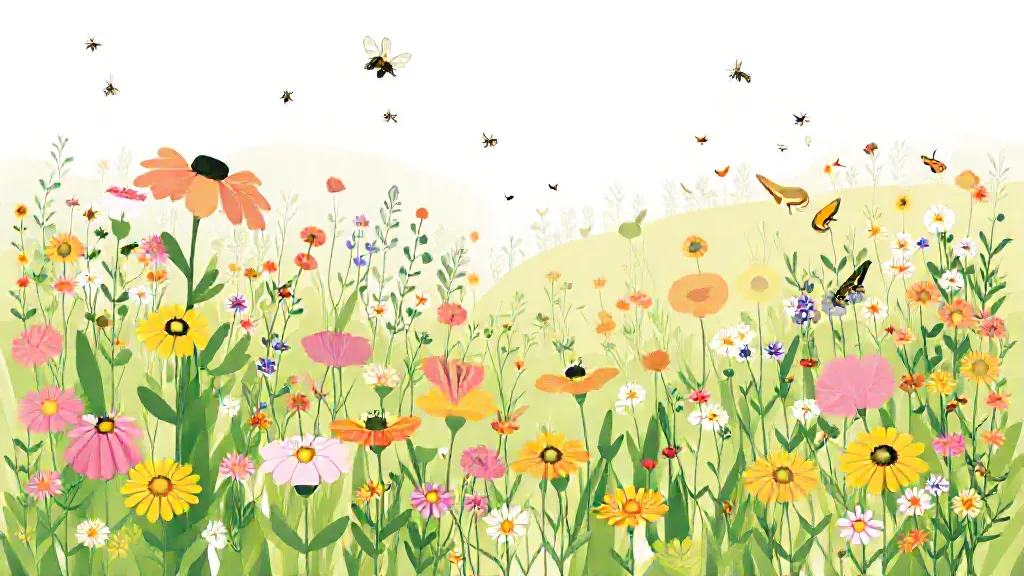Bees, often overlooked in the grand scheme of environmental discussions, play an indispensable role in maintaining ecosystem health and biodiversity. Their primary function as pollinators is vital for the reproduction of many plants, which in turn supports entire food webs. Without bees, the delicate balance of our ecosystems would be severely disrupted, leading to diminished plant diversity and a decline in the species that rely on these plants for survival.
The Pollination Process: A Lifeline for Flora
Pollination is the process through which pollen is transferred from the male parts of flowers to the female parts, enabling fertilization and the production of seeds. Bees are among the most effective pollinators due to their foraging behavior and physical adaptations, such as specialized body hairs that collect and transport pollen. Approximately 75% of the world’s flowering plants depend on animal pollinators, with bees accounting for a significant portion of this activity.
This relationship between bees and plants is not just a matter of convenience; it is a fundamental ecological symbiosis that sustains both plant and animal life.
Impact on Food Production and Human Health
The implications of bee pollination extend beyond natural ecosystems to agriculture and human health. Many of the fruits, vegetables, and nuts that constitute a significant part of our diet rely on bee pollination.
Crops such as almonds, blueberries, and apples would see drastically reduced yields without bees. According to the Food and Agriculture Organization (FAO), pollinators contribute to the production of approximately 87 of the world’s leading food crops, which account for 35% of global food production. The decline in bee populations poses a direct threat to food security and nutrition worldwide.
Bees and Biodiversity: The Ripple Effect
Bees contribute to biodiversity by enabling the growth of a variety of plants, which provides habitat and food for other organisms. A diverse plant community supports a wide range of animal species, from herbivores that feed on plants to predators that rely on those herbivores. The decline or extinction of bee species can lead to a cascading effect, resulting in reduced biodiversity and destabilized ecosystems.
For instance, the loss of a single bee species can affect the reproduction of multiple plant species, ultimately altering the entire ecosystem structure.
Threats to Bee Populations: A Growing Concern
Despite their critical role, bee populations are facing unprecedented threats due to habitat loss, pesticide use, climate change, and disease. Urbanization and agricultural expansion have led to the destruction of natural habitats, reducing the availability of food and nesting sites for bees.
Additionally, the widespread use of pesticides, particularly neonicotinoids, has been linked to bee mortality and impaired foraging behavior. Climate change further complicates matters by altering flowering times and disrupting the synchronicity between bees and the plants they pollinate.
Conservation Efforts: Protecting Our Pollinators
Recognizing the importance of bees, various conservation efforts are underway globally to protect these vital pollinators.
Initiatives include creating bee-friendly habitats, promoting organic farming practices, and raising awareness about the importance of pollinators in our ecosystems. Community gardens, urban green spaces, and wildflower meadows can provide essential resources for bees. Additionally, legislation aimed at reducing pesticide use and protecting natural habitats is crucial for the survival of bee populations.
The Role of Individuals in Bee Conservation
Individuals can also play a significant role in bee conservation by making conscious choices in their gardens and communities. Planting native flowering plants, avoiding chemical pesticides, and creating habitats such as bee hotels can all contribute to supporting local bee populations. Engaging in community awareness programs and supporting local beekeepers can further enhance these efforts.
Every small action can collectively lead to significant positive outcomes for bee health and ecosystem stability.
Conclusion: A Call to Action for Ecosystem Health
In conclusion, the significance of bees in maintaining ecosystem health cannot be overstated. Their role as pollinators is foundational to the survival of countless plant species and, by extension, the animals and humans that rely on those plants.
As we face growing environmental challenges, it is imperative that we prioritize the protection of bees and their habitats. By understanding and valuing their contributions, we can foster healthier ecosystems and ensure a sustainable future for all living organisms.
